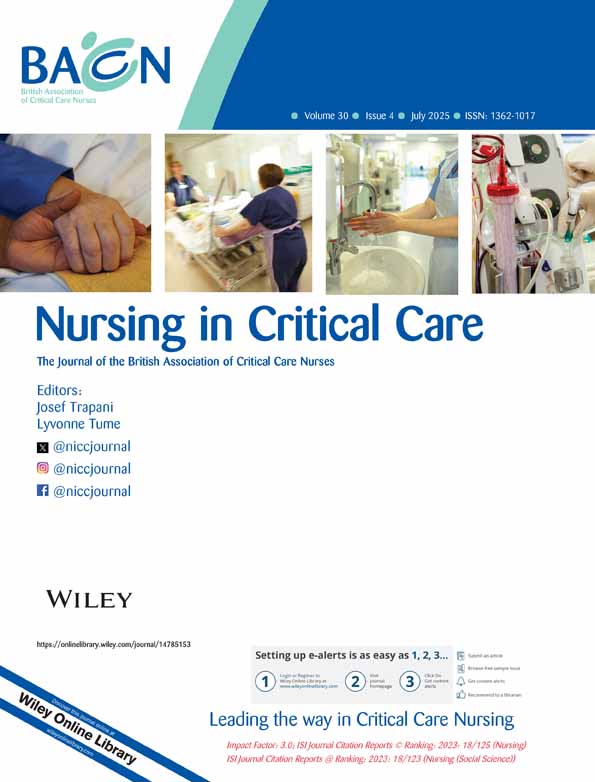Challenges of Newly Graduated Nurses During the Transition Process in the Intensive Care Unit: A Qualitative Study
Funding: This work was supported by the Clinical Nursing Research Fund Project, 2022-HLKY-25.
Wenli Yang is the first author.
ABSTRACT
Background
With the aging population and the long-term impact of COVID-19, the demand for intensive care unit (ICU) capacity has increased exponentially. This increase in demand, combined with the high nurse vacancy rate in the ICU, has also created several challenges for newly graduated nurses working in the ICU. However, there are limited reports on transition shock among newly graduated ICU nurses.
Aim
To analyse the process and identify the challenges of newly graduated nurses transitioning from students to clinical intensive care unit (ICU) nurses.
Study Design
This descriptive qualitative study was conducted in a tertiary hospital in Changsha, Hunan province, in South Central China. Semi-structured interviews were conducted to examine the experience of 21 newly graduated ICU nurses during the transition process. Qualitative data were analysed using content analysis. The COREQ checklist was used to ensure detailed and comprehensive reporting of this study.
Results
The following three themes emerged: (1) Novice phase: Forced to grow up fast; (2) The early stage of independence: the double shock of physiology and psychology; and (3) The advanced stage of independence: Normality and variability of challenges.
Conclusions
The transition process from nursing students to newly ICU nurses involves encountering different challenges at different stages. These challenges arise from knowledge and skills, physical, psychological and other aspects.
Relevance to Clinical Practice
Future nursing education should be based on its stage characteristics; after identifying potential sources of challenges, timely and dynamic adjustments should be made to the training and education plans to match the changing educational needs of nurses and facilitate a smoother transition of newly graduated ICU nurses.
Conflicts of Interest
The authors declare no conflicts of interest.
Open Research
Data Availability Statement
The data that support the findings of this study are available from the corresponding author upon reasonable request.




